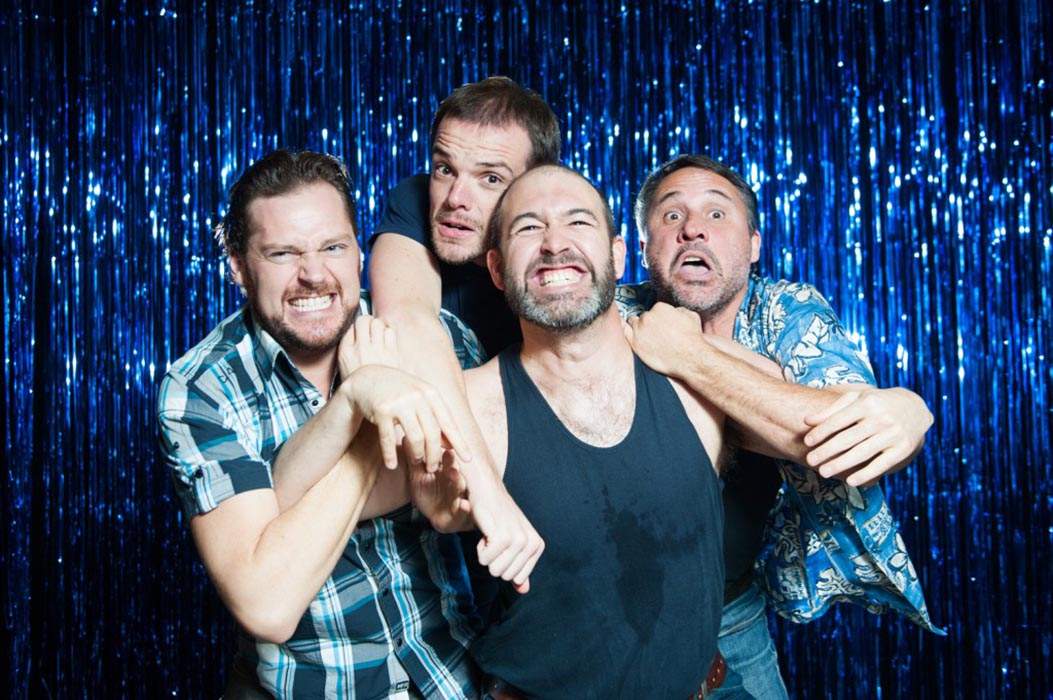Savages
A tale of old Aussie mates delivers something dark and fascinating.
Overview
Stark lighting and shadow fall upon the stage, which is tilted at a crazed angle like a skate ramp or the deck of a listing ship. Four men, shirtless, leap onto it like hunting predators. They seem like werewolves or some other supernatural beast, human in form only.
With this arresting image, Savages starts. Shortly after, the men will appear toting suitcases and garbed in holiday attire, exchanging merry greetings, but the image of them as monsters is stuck with you. While on the outside, this is a story about a group of 40-ish mates sharing a holiday, there is always a pulse of horror beating beneath the surface.
The latest play from Patricia Cornelius (Do Not Go Gentle, 2011) is a story about a group-assisted descent into darkness. A gang of old friends go on a cruise together, a long-awaited boys' holiday, swearing to leave their troubles, responsibilities and concerns behind them. Once at sea, a tension starts to build within the group and the savagery we caught a glimpse of at the start begins to peep out through the cracks.
From the beginning, there is a feeling of unreality. The dialogue frequently uses poetic devices, including frequent rhymed exchanges, and is often delivered in a declamatory style. While it feels unnatural, it is purposeful: the camaraderie among the men is depicted as a forced and not entirely convincing ritual that binds a group riven with tension, insecurity and unease.
On the steeply angled stage, there is a constant sense of things askew. The men engage in a constant game of competitive hypermasculinity — sweaty chest beating fuelled by lust and anger. No other actors are ever seen, making the men seem shut off from the world, not just by the sea, but locked within their interactions with each other. The group dynamic overpowers them as individuals.
Despite an overarching atmosphere of rising menace, the play employs a touch of humour and there are times when the men's antics are amusing, for instance when jostling in a boxy space that represents their cramped cabin, or struggling against their restless natures when trying to relax on deck chairs. In rare private conversations, you see hints of men on the cusp of middle age facing relatable issues — loneliness, career frustration, relationship breakdown, diminishing physical prowess. However there is always something a little bent in the way they process their problems. At first it feels troubling that you can never quite relate to the characters, but by the end you're glad of that.
The play draws on real-life cases of foul behaviour on cruise ships — most notably the events surrounding the death of Dianne Brimble in 2002 — though it is not so much a dramatisation of any one set of events as it an evocation of a psychology. While highly stylised, the play's depiction of group dynamics is well observed. Savages is a darkly fascinating piece, a strong statement on the human capacity for inhumanity.







